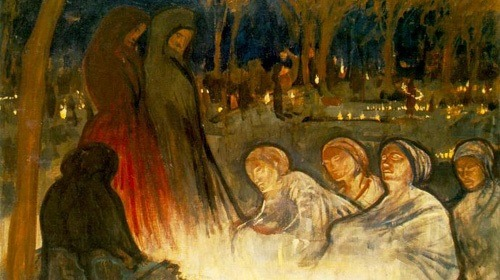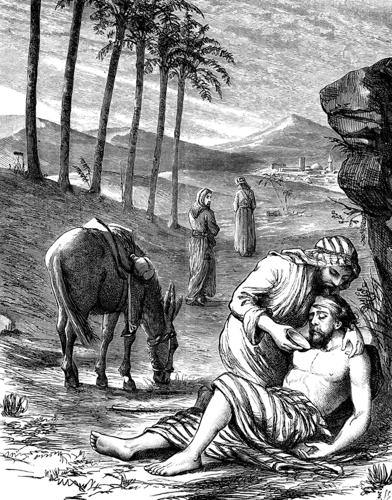𝗣𝘀𝗮𝗹𝗺 𝟯𝟮:𝟴-𝟵 𝗜 𝘄𝗶𝗹𝗹 𝗶𝗻𝘀𝘁𝗿𝘂𝗰𝘁 𝘆𝗼𝘂 𝗮𝗻𝗱 𝘁𝗲𝗮𝗰𝗵 𝘆𝗼𝘂 𝗶𝗻 𝘁𝗵𝗲 𝘄𝗮𝘆 𝘆𝗼𝘂 𝘀𝗵𝗼𝘂𝗹𝗱 𝗴𝗼; 𝗜 𝘄𝗶𝗹𝗹 𝗰𝗼𝘂𝗻𝘀𝗲𝗹 𝘆𝗼𝘂 𝘄𝗶𝘁𝗵 𝗺𝘆 𝗹𝗼𝘃𝗶𝗻𝗴 𝗲𝘆𝗲 𝗼𝗻 𝘆𝗼𝘂. 𝗗𝗼 𝗻𝗼𝘁 𝗯𝗲 𝗹𝗶𝗸𝗲 𝘁𝗵𝗲 𝗵𝗼𝗿𝘀𝗲 𝗼𝗿 𝘁𝗵𝗲 𝗺𝘂𝗹𝗲, 𝘄𝗵𝗶𝗰𝗵 𝗵𝗮𝘃𝗲 𝗻𝗼 𝘂𝗻𝗱𝗲𝗿𝘀𝘁𝗮𝗻𝗱𝗶𝗻𝗴 𝗯𝘂𝘁 𝗺𝘂𝘀𝘁 𝗯𝗲 𝗰𝗼𝗻𝘁𝗿𝗼𝗹𝗹𝗲𝗱 𝗯𝘆 𝗯𝗶𝘁 𝗮𝗻𝗱 𝗯𝗿𝗶𝗱𝗹𝗲 𝗼𝗿 𝘁𝗵𝗲𝘆 𝘄𝗶𝗹𝗹 𝗻𝗼𝘁 𝗰𝗼𝗺𝗲 𝘁𝗼 𝘆𝗼𝘂.
David came to his senses in Psalm 32 and opened his life to God, confessing sin and receiving forgiveness. When he had remained silent (vv 3-4) it had physical consequences – pain and exhaustion. But when he allowed God’s voice and conviction to come into his soul, he received pardon and regained God’s protection over his life. The famous “You are my hiding place” lyrics (v 7) are among the greatest statements in the Word of God about the shelter provided to the penitent.
The above verses are written as God’s words to David, and all readers. Whatever sin was confessed and forgiven is forgotten and God shows the way forward. It is his instruction that leads – and never into more iniquity. His advice and direction come from a motive of pure love and never manipulative self-advancement (God is quite secure as Lord over the universe).
Yet, obstinance is always a possible reaction from the human heart. Whether it stems from unbelief in God’s love and goodness or a desire to plot one’s own course, it reduces the person being directed to the mentality and willfulness of a brute animal. Even as humankind understands the need for means of controlling horses and mules, the rebellion of heart against God who grants the dignity of free will is held up as a right. And a right it is, but not without consequence.

Instruction is only good if it is imported as direction. Otherwise, it sits only as a varying opinion, and there is no shortage of those on the earth. Do I believe there is a God? Yes. Do I believe God’s instruction is a better teacher than my own wayward heart? Yes.
The walk is treacherous still, for the motives of people creep in, some even portending to speak for God – and others who really do speak for God in my life. The “loving eye” is key for me to see. God is for my good, not my control or frustration. May I see and walk with that knowledge. Amen.








